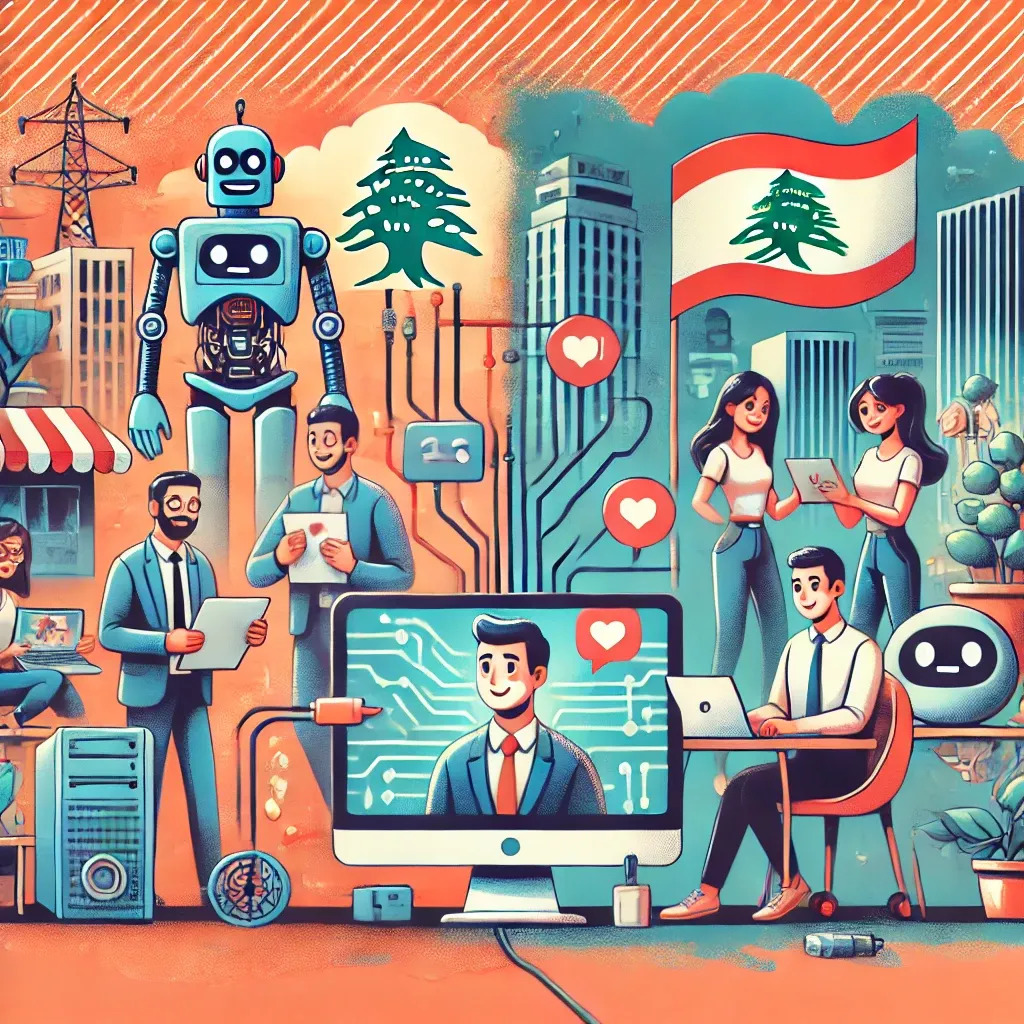Jun 20, 2024
Challenges with AI Chatbots in Lebanon
Technological Infrastructure and Economic Instability
Lebanese businesses often face challenges with limited technological infrastructure, such as unreliable internet connectivity and outdated systems. Economic instability further discourages investment in advanced technologies like AI chatbots, as businesses prioritize immediate financial stability over long-term innovations.
2. Misconceptions About AI Chatbots
Preference for Human Interaction
Many Lebanese consumers prefer human interaction, valuing personalized service over automated responses. This cultural preference makes businesses hesitant to adopt chatbots, fearing a negative impact on customer satisfaction. The misconception that chatbots cannot handle complex inquiries effectively also contributes to this reluctance.
Concerns Over Efficiency and Effectiveness
A common misconception is that chatbots are not efficient enough to address specific customer needs. However, with well-organized pathways and a robust knowledge base, chatbots can provide efficient and effective customer support, often outperforming human agents in terms of response time and consistency.

3. Overcoming Barriers
Raising Awareness and Education
Increasing awareness about the benefits and capabilities of AI chatbots is crucial. Educating businesses on how chatbots can improve customer service, reduce operational costs, and enhance customer satisfaction can help mitigate resistance to adoption.
Improving Technological Support and Integration
Enhancing technological infrastructure and providing better support for AI integrations can encourage businesses to embrace chatbots. Partnerships with global tech companies and local initiatives to improve internet reliability and tech accessibility can significantly boost adoption rates.
4. Cultural Considerations and Adaptation
Customizing Chatbots to Local Preferences
Developing chatbots that understand and respect local languages and cultural nuances can bridge the gap between automated and personalized service. This approach ensures that chatbots are seen as a valuable addition rather than a replacement for human interaction.
Highlighting Success Stories
Sharing success stories and case studies of businesses that have successfully integrated AI chatbots can provide a persuasive argument for their benefits. Demonstrating tangible improvements in customer service and operational efficiency can help shift perceptions and encourage wider adoption.
Conclusion
The hesitation to adopt AI chatbots in Lebanon stems from a combination of technological, economic, and cultural factors. By addressing these concerns through education, improved infrastructure, and tailored solutions, businesses can overcome misconceptions and leverage AI chatbots to enhance customer service and operational efficiency. For more insights and to explore how Weezli’s custom chatbot solutions can benefit your business, contact us today. Let’s bring your customer service into the future with cutting-edge AI automation.

https://medium.com/@weezli.lb/understanding-hesitations-and-misconceptions-ai-chatbots-in-lebanese-businesses-985dc7a56c64

